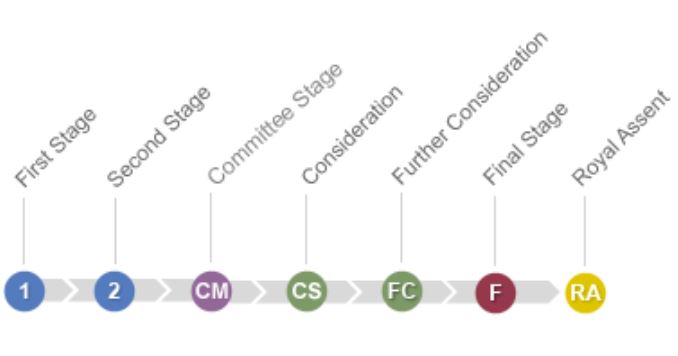The department's bill proposes targets for a 48% reduction in Northern Ireland greenhouse gas emissions by 2030, a 69% reduction by 2040, and an 82% reduction by 2050.
Reductions will be measured against the baseline year 1990 for carbon dioxide, methane and nitrous oxide and 1995 for the four other gases monitored. Unlike the private member's bill, which does not allow targets to be changed once they are set, the department's bill sees it retain the ability to amend both target years and percentages. However, this must be done only following consultation with the UK Climate Change Committee and other Northern Ireland Executive departments.
Carbon budgeting
It also proposes a system for carbon budgeting and how emissions will be reported against the targets and budgets set. It will account for carbon which is sequestered, for example through hedgerows and other carbon sinks, but will also include Northern Ireland's share of international shipping and aviation emissions. The first carbon budget will cover the period 2023-2027, with a new budget to cover each five-year block. The first three budgets must be set by 2023, with a clause stating further budgets must be set at least 12 years in advance of their implementation - a measure likely to ensure businesses and society has time to adapt. If the budget for one period is exceeded, the budget for the following period is reduced. However, this can only be done in consultation with other Executive departments and the UK Climate Change Committee. The bill sets out various obligations for the Department of Agriculture, Environment and Rural Affairs, UK Climate Change Committee and Northern Ireland Executive.It also seeks to impose climate change reporting duties on public bodies.
The Climate Change Committee will oversee Northern Ireland's contribution to UK net-zero and will publish a report on how it views the region's progress towards its goals. The department must prepare a statement at the end of each budgetary period reporting on how the region has performed in terms of greenhouse gas emissions, removals and net emissions. Within three months, the department must lay out a report before the Assembly setting out proposals and policies to further reduce emissions.The bill proposes all decisions made regarding targets are based upon UK and international climate law, scientific knowledge, and technology relevant to climate change.
Should different target emission reductions or target dates be chosen, the Climate Change Committee will be asked to provide its opinion on whether a target is achievable, and, if not, what alternative target it would suggest is achievable.Minister's comments
Speaking about the latest development, Minister Poots said: “While introducing the Bill is a formal process in the Assembly, it signals the momentum behind my Climate Change Bill and I am pleased that we have moved on to the next stage. “In recent months, there’s been a lot of public, media, political and stakeholder interest in what we do about climate change in Northern Ireland, up to 2050 and beyond – it tells me that we all have the same ultimate goal - to protect our planet.There is more that unites us, than divides us and I am confident that by working together we can ensure that our environment is protected and our agriculture sector is acknowledged as one of the key drivers in making that happen.“The bill I’ve presented to the Assembly is based on scientific evidence, has sought the views of stakeholders and is costed out properly. It takes a common sense and realistic approach to what is an extremely complex issue that can only be addressed successfully by bringing those who can make the change, along with us. "We’ve set ambitious targets and plans, but I’m also aware of the fact that technological advances over the next decade, may in fact help us to move quicker on those targets to cut carbon emissions by at least 82% by 2050.
Northern Ireland will play its important part in reaching UK net-zero by 2050, if not before.“I intend to maintain the momentum we’ve built upon this since I came into office and I am hopeful my Climate Change Bill can move to the second stage as quickly as possible, with support from my Executive colleagues in the Assembly.”

